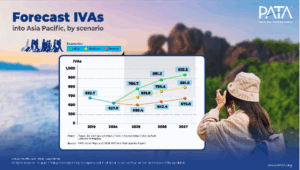‘Kathmandu Call for Action’

Kathmandu:The mountain countries have proposed for establishment of a separate fund to help mountain countries cope up with the impacts of climate change.
The International Conference of Mountain Countries on Climate Change adopted the 10-point ‘Kathmandu Call for Action’, calling on the global community to make dedicated funding arrangements for adaptation and mitigation programmes in mountain countries.Full text 0f ‘ KATHMANDU CALL FOR ACTION’–
KATHMANDU CALL FOR ACTION
We, the Ministers, Heads of Delegations and Representatives of International and National organizations, having attended the International Conference of Mountain Countries on Climate Change held from 5 to 6 April 2012 in Kathmandu, Nepal;
Aware of the human-induced multiple impacts of climate change on mountain ecosystems, goods and services and implications on livelihoods, health and welfare of the mountain people and environment;
Recognizing the need for urgent, collaborative and effective actions at all levels for addressing climate-induced vulnerabilities and impacts on mountains, enhancing the well-being of climate vulnerable communities and also strengthening the climate resilience of the people of mountainous countries; and
Applauding the Government of Nepal for starting the Mountain Initiative;
Appreciating the international expert consultation on mountains and climate change and taking note of their recommendations;
Also appreciating the South Asian Parliamentarians’ Workshop on Climate Change and taking note of their recommendations;
Hereby express our resolve to:
1. Reaffirm the spirit of solidarity and cooperation among the mountain countries and countries with mountainous regions for addressing the common problems affecting all the mountainous regions, and for consolidating our common efforts to effectively integrate mountain issues into the global climate change and development agenda including the Rio+20 process and beyond;
2. Promote research as well as use of traditional knowledge for sharing, learning and exchange of information and best practices to support science-policy interface and help find best solutions to climate change challenges through global cooperation, including south-south cooperation, recognizing that the mountains provide solutions for sustainable development using ecosystem services, in particular, water, biodiversity, energy, and for enhancing food security;
3. Reinforce that our collective actions will complement the objectives of achieving equitable and sustainable development including the Millennium Development Goals with a focus on reducing poverty and enhancing gender equity and social inclusion among the people in mountain countries and regions;
4. Agree to update the sustainable mountain development agenda in the context of growing challenges and opportunities, resulting from climate change and globalization;
5. Encourage building appropriate incentive mechanisms at various levels to recognize and reward mountain communities for conservation and maintenance of mountain ecosystem services through climate change adaptation and conservation of critical ecosystems;
6. Strengthen and consolidate the Mountain Initiative as a global platform for all mountainous countries to discuss common issues through collaborative and cooperative efforts for mobilizing the necessary support and raising awareness globally about the adverse impacts and vulnerabilities of mountain ecosystem services and implications on the livelihoods of the poor and disadvantaged people and make efforts to reduce impacts of climate change collectively;
7. Urge the development partners to support through the establishment of dedicated funding arrangements for the adaptation and mitigation programmes in mountain countries within the framework of UNFCCC and other sustainable development processes and build the resilience of communities, women and disadvantaged groups in particular, through a comprehensive and holistic approach at the local, national, regional and international levels in the spirit of enhanced global partnership; and
8. Recognize and build on high potentials of mountain ecosystem services to promote green growth strategies and strengthen linkages between mountain ecosystem and other ecosystems to reduce poverty and promote sustainable development;
9. Work collectively to mobilize global support to promote investment in mountain countries in an institutionalized manner, and to enhance the level of concrete cooperation among all the stakeholders, including the private sector, local communities, civil society and youth, with action plan based on mutual collaboration and commitments among the mountain countries and the development partners, UN system, including the Mountain Partnership, and multilateral organizations in order to ensure adequate and effective flow of financial resources, including innovative financing, technology and capacity building to the mountain countries;
10. Agree to give continuity to the Mountain Initiative on a sustainable basis, organize the next conference through mutual consultations at an appropriate time, and develop the programme of work to carry forward the Kathmandu Call for Action;
Have hereby decided to adopt this Kathmandu Call for Action.
Kathmandu, Nepal














